What are Impellers
Impellers are a critical component of various pumping systems, integral to the operation of pumps which are used in countless industries around the globe. They are the rotating part of a pump that transfers energy from the motor that drives the pump to the fluid being pumped by accelerating the fluid outwards from the center of rotation. The process by which impellers move fluid is through centrifugal force, a phenomenon that occurs as the impeller rotates, causing fluid to exit at a higher pressure than when it entered, thus enabling the movement of fluids from one location to another.
The design and operation of an impeller are vital for businesses in sectors such as manufacturing plants, agricultural irrigation, wastewater treatment, and mining industry among others. Its efficiency can significantly influence the overall performance of a pump, affecting factors such as flow rate and pressure. The principles behind its operation are rooted in fluid dynamics and energy transfer, making it an essential study for engineers and technicians in applicable industries.
Impellers come in various shapes and materials, each suited for different pumping needs and fluid properties. They are commonly made from metals like stainless steel or aluminum due to their strength and corrosion resistance but can also be found in plastics and other composites. Choosing the right impeller affects not only the efficiency but also the longevity and maintenance requirements of the pump it is a part of.
Types of Impellers
The variety of impellers available on Alibaba.com is extensive, with each type designed to meet specific operational needs and fluid handling characteristics. Here’s a brief overview:
- Closed Impellers: These impellers have a back and front shroud which encloses the vanes, providing excellent efficiency with clean fluids. They’re commonly used in water distribution and industrial boilers where precise performance is required.
- Semi-Open Impellers: With only one shroud, semi-open impellers allow easy access for cleaning, making them suitable for applications involving slurry or wastewater, such as in wastewater treatment plants.
- Open Impellers: Without shrouds, open impellers can handle suspended solids effectively. They are less efficient than closed types but useful in industries like mining or construction where debris might be present in fluids.
- Vortex Impellers: These create a vortex that allows solids to pass through without contacting the impeller vanes, ideal for pumping waste or other materials prone to clogging.
- Axial Flow Impellers: These work more like propellers and move fluid in a direction parallel to the impeller shaft. They’re often used in applications requiring high flow rates and low pressures such as agricultural irrigation.
How to Choose Impellers
Selecting the right impeller is crucial for ensuring optimal pump performance. Businesses looking to purchase impellers should consider several factors:
- Flow Requirements: Understanding the required flow rate is essential to choose an impeller that can manage that volume efficiently.
- Fluid Properties: The type of fluid being pumped will determine the material and design of the impeller; abrasive or corrosive fluids require more durable materials like stainless steel.
- Pump Application: The end-use application dictates whether high efficiency is more important than the ability to pass solids without clogging.
- Energy Efficiency: An appropriately sized and designed impeller will minimize energy consumption and operational costs.
- Maintenance Needs: Some impeller types are easier to clean and maintain than others; open impellers may be preferable for fluids containing solids that could cause clogging.
By considering these factors within their operational context, businesses can make an informed decision when sourcing impellers through Alibaba.com's marketplace.
Best Impellers on Alibaba.com
Alibaba.com stands out as a premier online marketplace that connects businesses with a vast range of wholesale impellers suitable for various industrial uses. With an expansive selection of products listed by numerous suppliers globally, Alibaba.com facilitates businesses in finding precisely what they need—be it standard or customized impellers tailored to specific operational requirements. Moreover, the online platform's Trade Assurance service provides peace of mind by safeguarding payments until delivery is confirmed.
The platform's user-friendly interface allows buyers to efficiently search and filter through options based on material type, application industry, blade material, pressure requirements, and much more. This streamlined approach saves time and resources for businesses looking to purchase bulk orders or even single high-value items. Backed by 24/7 customer support and technical assistance options, Alibaba.com ensures a seamless purchasing experience from initial inquiry to after-sales service.
With its commitment to connecting global markets and facilitating trade across borders, Alibaba.com empowers businesses of all sizes to source high-quality pump components with confidence. Whether for construction works, manufacturing plants or agricultural purposes, purchasing from Alibaba.com means engaging with a trustworthy platform that prioritizes both buyer satisfaction and supplier reliability.
Common FAQs for Impellers
What is an impeller in a pump system?
An impeller is the rotating component within a pump that transfers energy from the motor to the fluid being pumped, causing acceleration of the fluid outward from the center of rotation, which generates flow and pressure.
How do I determine the right impeller size for my application?
The correct impeller size for a given application is determined by the required flow rate, head, and the specific speed at which the pump is intended to operate. It's important to match these parameters with the pump's design to ensure efficient operation.
Can impellers be used for all types of fluids?
Impellers can be used for a wide range of fluids, but the choice of impeller type and material depends on the fluid's properties, such as viscosity, abrasiveness, and chemical composition. Selecting an impeller that matches these properties is crucial for the durability and efficiency of the pump.
What materials are commonly used to manufacture impellers?
Common materials for manufacturing impellers include stainless steel, cast iron, aluminum alloys, bronze, and various plastics. The choice of material depends on factors such as the fluid's properties and the desired durability and performance of the impeller.
Are custom impellers available for unique applications?
Yes, custom impellers can be designed and manufactured to meet unique operational requirements, including specific dimensions, materials, and performance characteristics tailored to specialized applications.
How do open and closed impellers differ in performance?
Open impellers have no shrouds and are typically used for solid-laden or slurry fluids. They are easier to clean but are less efficient than closed impellers. Closed impellers have front and back shrouds for improved efficiency with clean fluids and precise performance.
What is a semi-open impeller suitable for?
A semi-open impeller has a single shroud that allows easy access for cleaning, making it suitable for applications that may involve slurry or wastewater with moderate amounts of solids.
What are vortex impellers and where are they typically used?
Vortex impellers create a swirling liquid flow that allows solids to pass through without contacting the vanes, which reduces the risk of clogging. They're typically used in waste management or other applications prone to clogging.
How does axial flow differ from centrifugal flow in impellers?
Axial flow moves fluid in a direction parallel to the impeller shaft, similar to a propeller, making it ideal for high flow rates and low-pressure applications. Centrifugal flow occurs when an impeller throws fluid outward from its center at high speeds, creating pressure through centrifugal force.
What considerations should be taken into account for energy-efficient impeller operation?
When seeking energy-efficient operation, it's important to consider factors such as proper sizing of the impeller to avoid unnecessary power consumption, selecting an efficient design that matches the system's hydraulic requirements, and using materials that minimize losses due to wear or corrosion.
How does impeller blade count affect pump performance?
The number of blades on an impeller can influence its performance characteristics. More blades generally result in smoother fluid flows and increased efficiency but may also increase manufacturing costs and complexity.
Can I replace an existing pump's impeller with a different type?
Replacing an existing pump's impeller with a different type may be possible but requires careful consideration of compatibility with the pump casing, motor capacity, expected performance changes, and potential modifications required for installation.
In what industries are impellers most commonly used?
Impellers are widely used across diverse industries including manufacturing plants, agricultural irrigation systems, construction sites, wastewater treatment facilities, mining operations, and many others where fluid movement is essential.
What after-sales services are provided for impellers purchased on Alibaba.com?
After-sales services vary by supplier but may include online support, video technical support, free spare parts provision, and engineers available to service machinery overseas. It's important to check with individual suppliers on Alibaba.com for specific after-sales service offerings.
How does Alibaba.com ensure quality control in its listed products like impellers?
Alibaba.com provides a platform where suppliers can list their products; quality control is managed by each individual supplier. However, Alibaba.com offers Trade Assurance service that helps protect buyers if products do not meet quality standards or shipping deadlines.




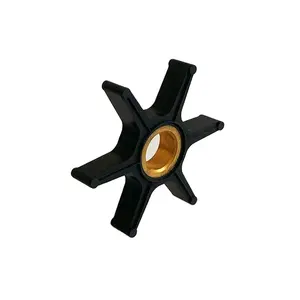




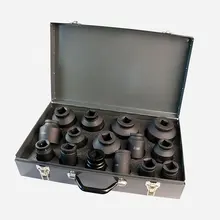

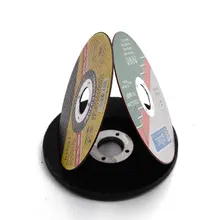

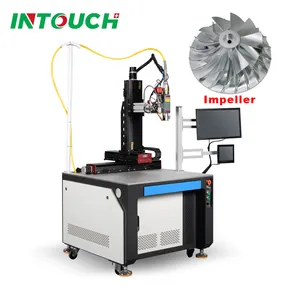



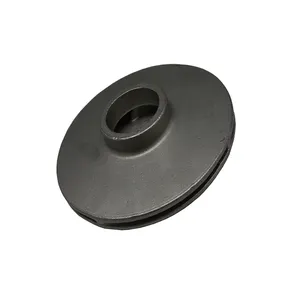
























 浙公网安备 33010002000092号
浙公网安备 33010002000092号 浙B2-20120091-4
浙B2-20120091-4